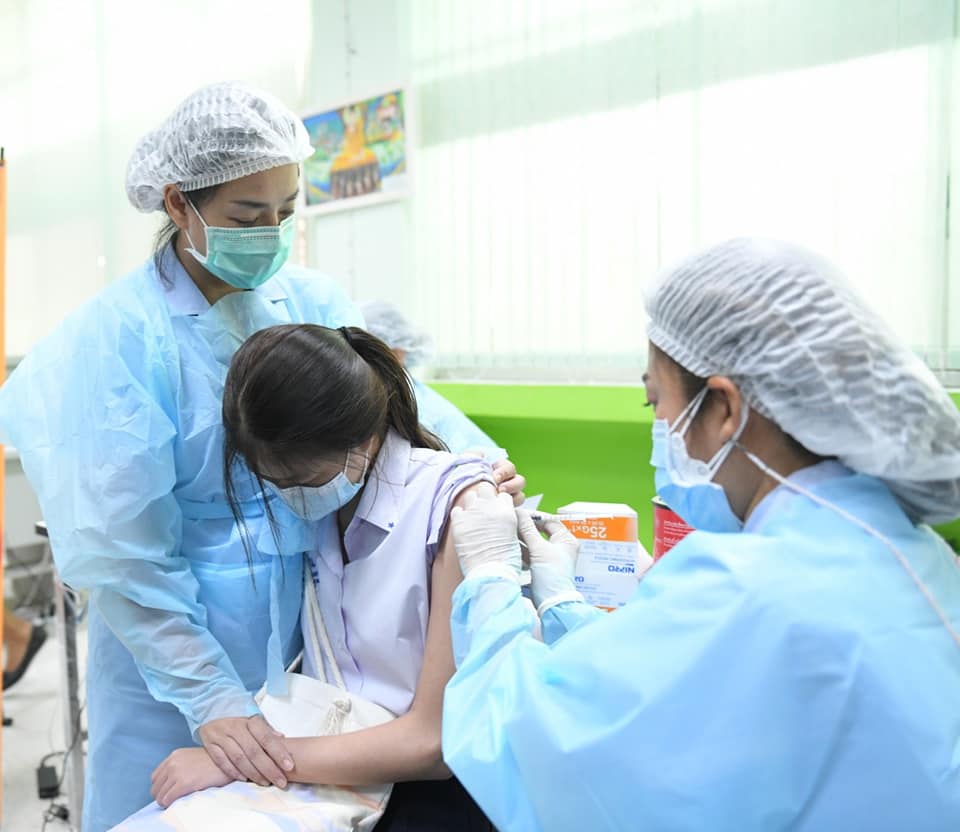
The National Health Security Office has announced it will be providing compensation for young vaccine recipients suffering from side effects based on severity, with a maximum compensation amount of 400,000 baht.
The National Health Security Office (NHSO) said 12- to 18-year-old recipients of COVID-19 vaccine are entitled to the same compensation rates as adults.
The compensation will be provided on three tiers. First, 100,000 baht will be paid out for each case of continued hospitalization. Second, up to 240,000 baht will be paid out for each case of organ loss or disability. And third, up to 400,000 baht will be paid out in case of death or permanent disabilities.
This compensation scheme is only applicable for recipients of government-provided COVID-19 vaccines, while those paying for alternative jabs are typically covered under private insurance policies included in the price.
The NHSO Secretary-General Dr Chadet Thammathat-aree said in the case that recipients suffering from severe side effects cannot contact the hospital where they received the vaccine, their provincial public health office or any local NHSO office will file for compensation on their behalf.
Thailand officially kick-started the vaccination campaign for adolescents aged 12-18 years on Monday, with the Pfizer-BioNTech vaccine being the only vaccine available for this age group.
The NHSO chief said this mRNA vaccine is known for causing very rare heart inflammation, but the benefits from the vaccine greatly outweigh the risks.
However, due to concerns about this rare and treatable side effect that occurs more frequently among teenage boys, Thailand is currently giving only one Pfizer dose to teenage boys under 18 years old, until more data becomes available.
Vaccination for teenage girls in this age group will follow the manufacturer’s dosing schedule, with two doses given 3 weeks apart.
Dr Apisamai Srirangsan, a deputy spokesperson at the Center for COVID-19 Situation Administration said younger recipients should monitor themselves in the first week after receiving the vaccine for signs of heart inflammation, which include constriction of airways, dizziness, and fainting.
Recipients experiencing these symptoms should immediately visit the closest hospital for treatment, and inform hospital staff of their vaccination history.
Some 30,000 teenagers have so far received their first doses of COVID-19 vaccine, with some 3.5 million teenagers now granted consent for vaccination from their parents. There are still around 1 million children yet to register for their inoculation. (NNT)
 |
 |
 |




